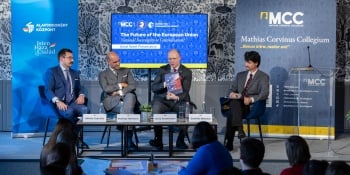Published: 10.01.2021

An English hospital decided to harvest organs of a Polish citizen who suffered from a heart attack in November last year. This happened despite the fact that the man remains in a minimally conscious state, opens his eyes and reacts to stimuli. However, the British government sustained the resolution of the hospital authorities, so his nutrition and hydration can stop any day. The Ordo Iuris Institute demanded a provisional decision of the UN Committee on the Rights of Persons with Disabilities.
The Pole ended up in hospital in November following a heart attack. A few days later, the hospital authorities decided to use his organs for transplantation. In December, the British government decreed that the administering of life saving measures should cease, and it did. The first instance decision was sustained by the court of appeal, which gave the man’s family time to seek other solutions, if possible, including international means, by January 7th this year.
The hospital authorities argue that the man is in a vegetative state. However, other neurologists have a different view on his state. They believe the Pole remains in a minimally conscious state – he breathes on his own, responds to the presence of his family.
The Ordo Iuris Institute demanded a provisional decision of the UN Committee on the Rights of Persons with Disabilities. It emphasises that Article 10 of the Convention on the Rights of Persons with Disabilities guarantees the right to life to everyone, including the disabled. The article also does not condition the right on the person’s “quality” of life. Article 15 of the Convention prohibits cruel treatment of people with disabilities. In turn, Article 22 provides for the respect of their privacy, family and home, as well as their honour and reputation. Furthermore, Article 25 emphasises the right of the persons with disabilities to the enjoyment of the highest attainable standard of health.
“Human life is a value protected in all circumstances. Attempts at treatment and rehabilitation of people who breathe on their own, and – according to neurology specialists – whose health can improve significantly, must not be considered futile. The approach to such bioethical issues differs a great deal in the UK and Poland. The law, however, must protect fundamental values, such as human life”, says Filip Furman, PhD, Director of the Social Sciences and Bioethics Centre of the Ordo Iuris Institute.

17.04.2025
• The Ordo Iuris Institute has prepared an opinion for the UN as part of a thematic report on surrogacy and its impact on the rights of women and children.

• Representatives of Ordo Iuris took part in the second round of consultations ahead of the 58th Session of the UN Commission on Population and Development (CPD58) on global health policy.


• The European Union’s Council Conclusions on EU Priorities in UN Human Rights Fora in 2025 identify key areas of EU human rights activities at UN fora and refers to several universal human rights, such as freedom from torture and freedom of religion or belief.